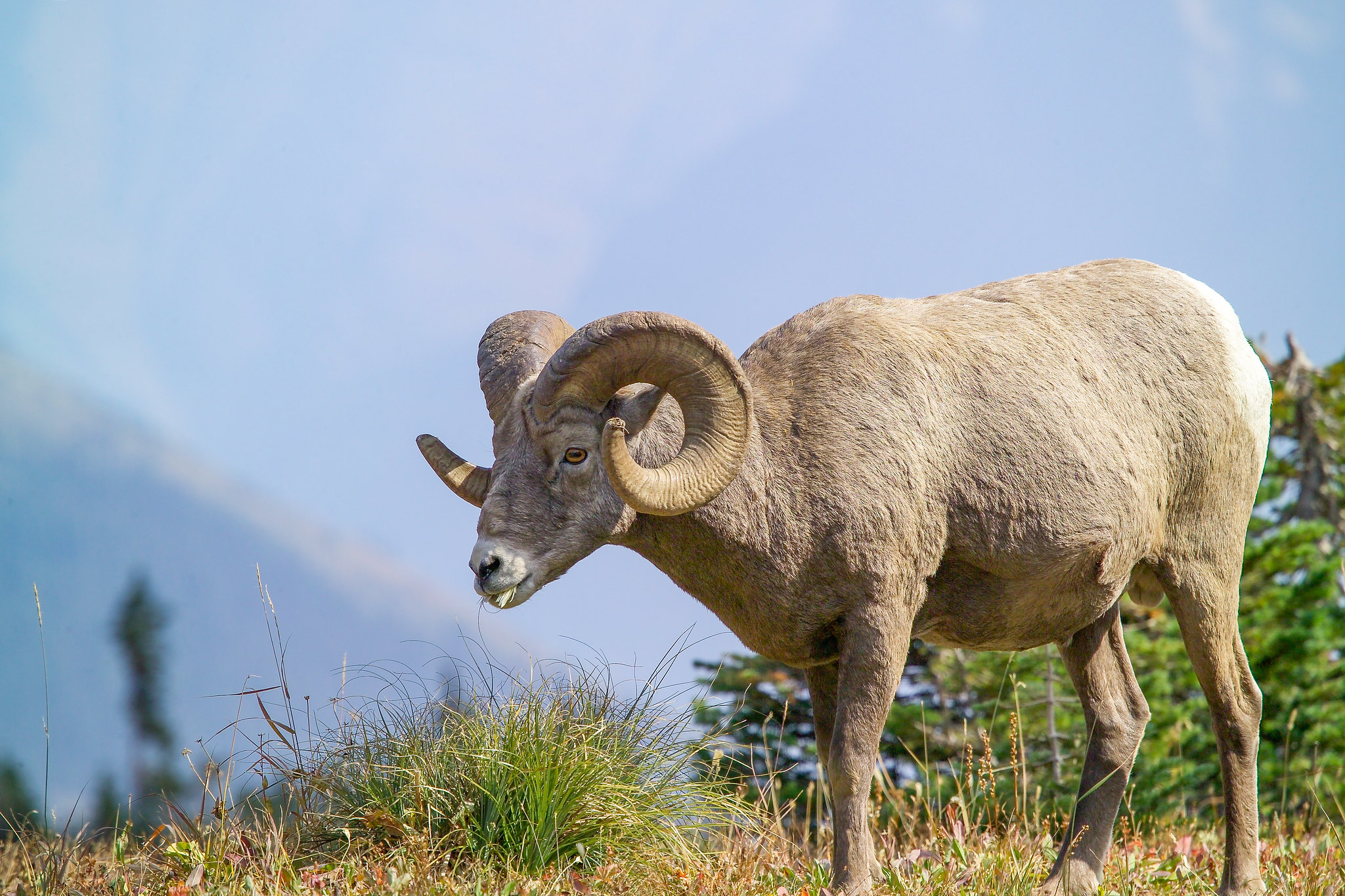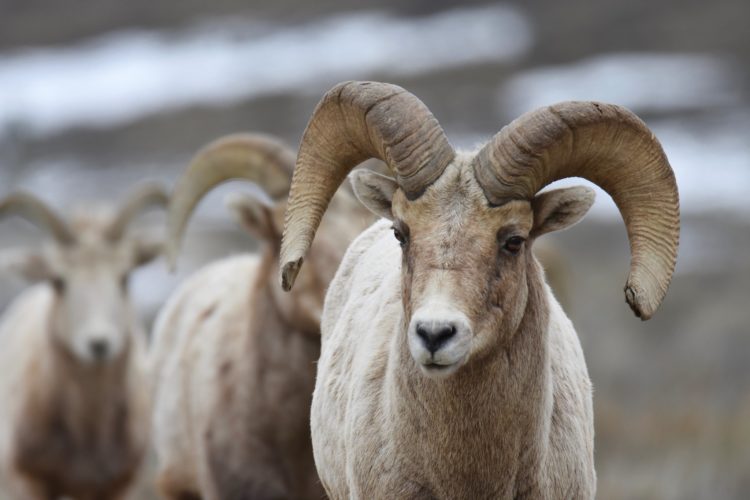We have much more to do and your continued support is needed now more than ever.
Creative Solutions Protect Southwest Colorado’s Bighorn Sheep

High in the San Juan range of Southwestern Colorado are some of the highest mountains in the United States including a number of peaks that top 14,000 feet, or “14ers,” such as Mount Handies, Eolus, Wetterhorn, Uncompaghre, Sneffels, and others. These peaks and the high mesas and valleys between them are also home to some of the largest populations of bighorn sheep in the country. But in these same areas, on US Forest Service and Bureau of Land Management public land, there is an increasing—yet often overlooked—threat to these majestic animals: domestic sheep.
While ranchers can acquire a grazing permit, domestic sheep carry a number of pathogens that can cause die-off, threatening most of or even all of these iconic Bighorn herds. These die-offs have already claimed many of the herds that rely on the San Juan range. Across the West, this issue has led to at least an 85% reduction in the areas occupied by bighorn sheep.
Unlike with Covid-19, which has a vaccine, there is neither a vaccine nor treatment that will solve the problem. As a result, our only solution is separation. In humans, the CDC recommendation is 6 feet of separation, but for bighorn sheep, the scale is measured in miles. The research tells us that this is the only way to sufficiently reduce the risk of disease outbreaks that have decimated wild sheep throughout North America.

Complex challenges require creative solutions. So when public land domestic sheep grazing allotments overlap with or are very close to herds of bighorn sheep, the National Wildlife Federation’s Wildlife Conflict Resolution Program found an opportunity. Our approach works with interested ranchers.
Together, we negotiate a fair-market price for domestic sheep public land grazing allotments in exchange for the retirement of the ranchers’ right to graze that allotment. A recent example is the Endlich Mesa domestic sheep allotment, just a few miles from one of Colorado’s highest priority bighorn sheep herds. This herd roams over 200,000 acres of the remote Weminuche Wilderness Area.
The Federation team reached out to rancher J. Paul Brown, who holds the permit to this grazing allotment and successfully negotiated the sale price to retire this permit. As a result, the 11,000-acre Endlich Mesa grazing allotment will never be grazed again. This high elevation plateau with lush vegetation, cliffs, and plenty of water, absolutely perfect habitat for bighorn sheep.
Engaging ranchers who hold permits for high-conflict grazing allotments in this voluntary, market-based approach is a win-win. It recognizes the economic value of livestock grazing permits and fairly compensates livestock producers for retiring their leases while also meeting wildlife conservation goals by removing livestock from these high priority areas. As one rancher who worked with the Federation to retire another allotment near Aspen, Colorado, said: “It was an opportunity that came up for me – it was good for the bighorn sheep and it was going to work for me.”
It has also had 20 years of success. Program manager Bob McCready noted, “So far, we have retired over 1.5 million acres of public land grazing permits, an area the size of Delaware and our goal is to retire another million acres over the next three years. The fact that we are on track to meet this goal, speaks volumes to the momentum we’ve built over the last few years.”
But our work is not done. Working to remove livestock from public land grazing where there are serious conflicts with wildlife takes time and the support of Federation members. To learn more about the Wildlife Conflict Resolution Program and how you can help, click here https://www.nwf.org/wcr





















